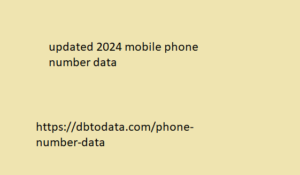It’s time! You’ve had it in the back of your mind for a while now, but you’ve realised the hour is right to take the plunge, and you want to start a blog. Welcome! You’ve come to the right place.
If creating a blog is something you’ve been thinking about but you haven’t known where to start, then these are some basics you could keep in mind to ensure you create a blog not only you love, but your readers will too. A blog you won’t get sick of in six months’ time and abandon (which happens more than you think!), but something you can build and be proud of.
5 Things to Think About Before You Start Your New Blog
1. Is this the topic I want to write about forever, or have I given myself some wiggle room?
If you changed your mind a year into blogging and wanted to go in a different direction, you wouldn’t be the first.
We can often start a blog for one reason deb directory and continue it for another. Where this gets difficult (without losing all your hard-earned readers and starting again) is where you’ve boxed yourself in so tight that you can’t branch out.
Now I’m not saying a slender niche is a particularly bad idea, if you’re passionate about it – Nerd Fitness has nailed the brief, as has Lotsa Fresh Air, just to name two. If you can see yourself still motivated and excited to write about your chosen topic five years from now, then you’re laughing. But if you’ve chosen a niche just because it’s a current trending topic and you think it will get you tons of traffic, you may find you can’t stand it 12 months in and you’ve got nowhere to go. And worse, the trend for that topic has passed!
There’s no reason why you can’t start out as a personal blog and write about all sorts of things until you hit up on your niche. There’s also no reason why you can’t transition from a particular topic to something different that you’ve touched on before. The thing is to keep your options open if you’re not sure, or really be sure before you start.
Has your idea got longevity? Or do you have a Plan B?
2. The technical bits
No need to be frightened by this list, as simple as I’ve tried to keep it! You’ll often find that plenty of these things come with time and you can do them gradually. You might start out on the Blogger platform with no newsletter and eventually move onto a different platform with a simple email-capturing plugin. Baby steps!
It also goes hand in hand with just starting your blog rather than waiting until you’ve got all your ducks lined up. I’m a huge proponent of jumping in with both feet and figuring it out later. There’s a huge chance you won’t even start (or you’ll waste valuable time) waiting around until you’re 100% sure with every single aspect of your blog.
But it doesn’t hurt to have a think about these options, even if you end up putting them in the too-hard basket to deal with at a later date.
If you’d like step-by-step instructions for the technicalities of setting up a blog, Darren has written a fantastically comprehensive tutorial here: How to Start a Blog. You can also check out our Start a Blog portal for further newbie info.
- Hosting: Which company will you go with? How much money do you have to spend? Will they take into account certain circumstances for your blog? Things like load time and dedicated servers are important, make sure you can find out all the information you think is relevant to you.
- Platform: It’s no longer a fight to the death between WordPress and Blogger, there are plenty of other options in the mix these days too. Squarespace has a lovely, clean look, and Tumblr is easy to use, for example. Will you be selling your own product in the future, and therefore have to look at a platform that also has ecommerce ability? Or do you need to choose between WordPress.com or WordPress.org? The options are many, but it depends on what you want to get out of it. A simple online journal could work well on Blogger, or for more functionality and control, you could go self-hosted WordPress.
- Domain: First, read 4 Things to Consider When Choosing your Domain name, as it has several very important components for you to think about. Will you get your own domain name? (I recommend it!), does anyone else have that domain or similar? Which company will you buy it through?
- Design: Do you know how to design webpages, or are you going to buy a theme? Will you install it yourself or get someone else to? Will you leave it as standard, or make tweaks to it? Do you have enough white space, easy navigation, and a clear layout?
- Email address: If you’re not getting an email address through your blog hosting, which platform will you use? Will it be your blog name? What if it is taken (like mine was)? Think thoroughly about what the alternatives could be rather than rushing into it, or you’ll be stuck with a not-so-great email address (like I was!) which is meant to be a professional representation of you.
- Structure: How will your blog layout look? What kinds of posts will you be writing? Will you be doing mainly video? Are visuals your priority?
- Plugins: What kind of functionality do you want your site to have? A recipe index? An Instagram widget? An email signup form? A spam filter? What comment system? Printable recipe cards? Easy SEO? The options are pretty unlimited, but a bad plugin can flood your site with errors, or worse – malware. Do your research and only use the plugins you really need and keep them updated.
- Social Media Accounts: This almost goes without saying in this day and age, but think about which ones will be most useful for you, and secure your blog name on them (or whatever you want to be known as). You don’t have to use all of them regularly, but it’s best to have a presence on each, even if you just direct folks to the updated 2024 mobile phone number data platforms you do use regularly. How will you display these on your site so your readers know where to find you?
- Visuals: How wide will your pictures be? Will you need a slider? What about your blog profile picture? Are they optimised for the web so they don’t drag down your load speed?
- Safety: How will you stop your site being accessed by hackers? What protection does your host offer?
- Backups: What happens if your blog suddenly disappears? Gets hacked? Gets taken down by a rogue plugin? If you had to repopulate your entire site, where will you get the info to do that? Do your research on backups and backup plugins.
- Spam filters: How will you cut down on the amount of bots trying to get backlinks to their sites? Will you use the general WordPress Jetpack or something else?
- Email collection: If you’re going to build an email list, how will you capture readers’ emails? Will you be creating a newsletter? Where will you keep all your collected email addresses?
3. Branding
If you haven’t already decided 100% about a blog name, now is the time! Some of us know exactly who and what we want to be, and others go through some more brainstorming to come up with the perfect title that sums up the blog’s ethos.
Take into account basic marketing tips:
- Is the name easy to remember?
- Does it roll off the tongue?
- Is there something sufficiently different about it so that it stands out?
- Does it make a good URL?
- Are there keywords in it?
- Can you see yourself being happy with this name in a year’s time? In five years’ time?
Do you have a particular logo or colour scheme in mind? Your blog’s header is the first thing people see, usually – are you settled on a graphic? Or will it be just text? Will you use this branding across your social media, or a profile picture of yourself?
Your branding is how you are represented visually, and while you can definitely change it in the future, you should have some idea of how you want to come across right now and what name/image will describe that for you.
4. Where’s your community?
A blog isn’t really a blog without 5 стратэгій лічбавага маркетынгу якія вы можаце рэалізаваць зараз readers – you need people to visit your site and interact with it for your blog to be successful.
It’s very tempting to just start writing and hope people find your blog, but it’s always best to sit down and have a brainstorm about where those people might actually be so you can be there too!


